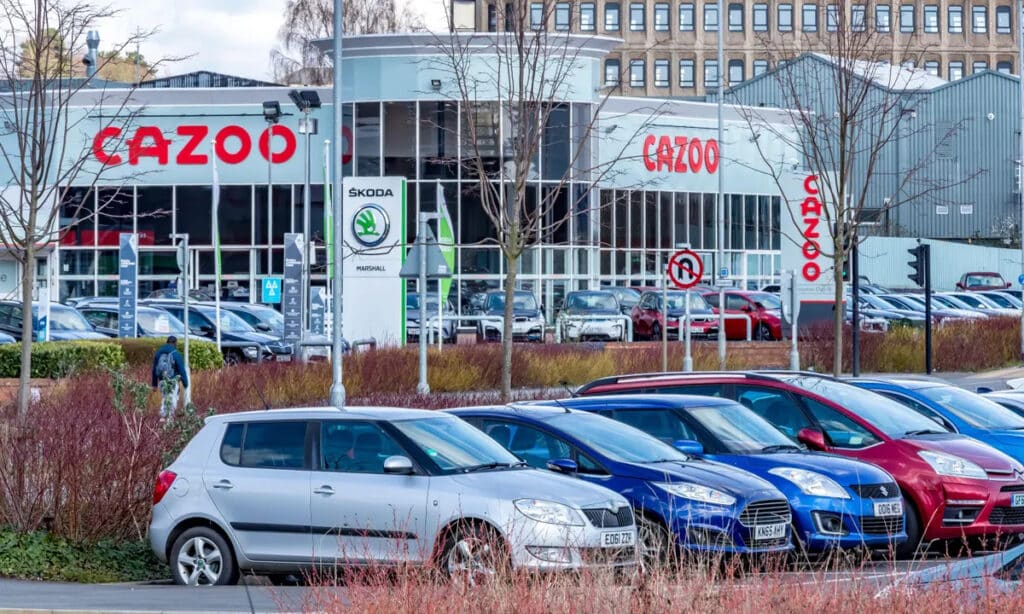There are at least three things that can kill off a business idea and what we’ve got to decide with Carvana (NYSE: CVNA) and Cazoo (NYSE: CZOO) is which one of the three – or indeed some other – is dragging them down. Only once we’ve worked out why it’s not currently working can we try to decide whether it will in the fullness of time.

That is, are Carvana and Cazoo bombed out relics of failures or are they possibly about to rise from the near-dead? The stocks are well down of course – CVNA by 93.5% and CZOO by 94.9% over the past 12 months. So, simply bad ideas that have been found out of passing problems that will be surmounted? At which point we can decide whether to try to bet on the revival or perhaps try shorting down to zero. Or, of course, deciding to go play elsewhere.

Those Three Failure Reasons For Carvana And Cazoo
Of those three reasons one is the possibility of just bad management. Shocking as it may sound running a large company is difficult, the number of people who can do it small. So, many entirely – in theory – respectable ideas just never do get off the ground just because the people trying to make it do so aren’t up to it. This normally though means one company in a sector succeeds, the other doesn’t – not all trying the same thing drop 94%.
The second is that the idea itself just doesn’t work. There’s nothing wrong with looking at the used car market and thinking that perhaps it can be revolutionised. But whether it can be so revolutionised is the thing. Given that there are online marketplaces where buyers and sellers can deal direct (Autotrader comes to mind) the likely margins between buying in and selling price could well be thin. Further, there’s an extra cost that the dealer has to carry. The warranty – in most places in the US the dealer must provide a limited guarantee. That adds costs that the private sellers don’t have. It’s therefore not obvious that with the possible margins set by people without the same cost structure that the idea is a goer.
But maybe name and brand and utility and all that can overcome such problems. Maybe.
The third is that something has happened. Management’s fine, the idea is a good ‘un, but some external factor has made things go awry. That’s actually possible here, however much it’s the excuse use by all bad managements to excuse bad ideas. For the used car market has just had a huge boom and then collapse.
Lockdown Changed The Used Car Market
During lockdown the car companies slashed their chip orders because they assumed new car demand would be pitiful. Lockdown ends, they’ve now lost their places in the queue for the necessary chips. There was in fact a dreadful shortage of new cars – this meant the price of used cars rose substantially. Year old models were actually trading at substantial premiums to new. Because a year old used could actually be purchased, while trying to buy a new one just got you put on a waitlist. It’s exactly this change in used car prices that killed then revived Hertz.
A rising market when you’re a broker is absolutely great. Because the stock you’ve just bought is rising in value while you hold it for sale. But of course, that same process goes into reverse in a falling market. Every day you hold every piece of stock you’re losing money on every single piece of stock you have. This is not good.
This Is A Problem, A Solvable One, For Carvana And Cazoo
So, Carvana and Cazoo accounts have definitely been hit by the fall in the value of their stock – stock in trade that is, not share prices – over this past year, just as they were flattered before that.
The difficulty for us is in trying to decide whether that’s enough for an explanation of their fiscal travails. If it is then we can at least contemplate betting upon their revival. Used car prices are, after all, now about where they usually are in relation to new car prices.
On the other hand, if this is a true but insufficient explanation then we’ve got to consider one of the other two ideas. That the people trying to run the companies just aren’t very good at doing so, or that the base idea of doing a roll up of the used car business doesn’t work in and of itself.
What we might want to do about the shares mentioned depends, of course, on which explanation for the current travails we put most faith in.